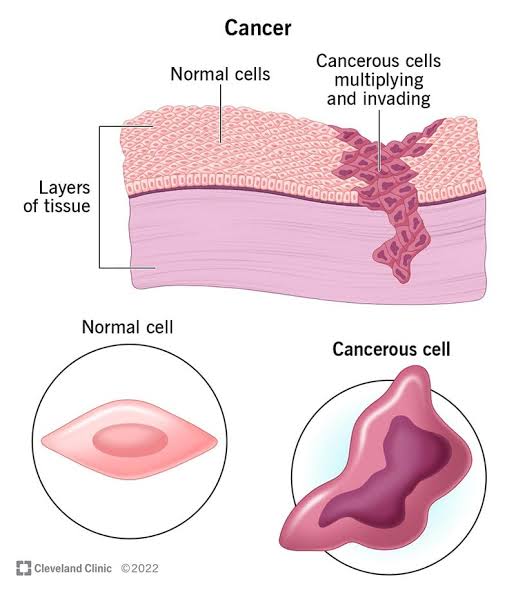Cancer is a group of diseases that involves the uncontrolled growth and spread of abnormal cells in the body. There are many different types of cancer, each with its own set of causes, symptoms, and treatment options. In this article, we will explore the basics of cancer, including what it is, how it develops, and what can be done to prevent and treat it.
What is cancer?
Cancer occurs when cells in the body begin to grow out of control. Normally, cells grow and divide in a regulated way, but in cancer, this process becomes disrupted. As a result, abnormal cells begin to form tumors, which can invade nearby tissues and spread to other parts of the body.
What causes cancer?
There are many factors that can increase a person's risk of developing cancer, including:
- Age: The risk of cancer increases as people get older.
- Genetics: Some types of cancer are linked to specific gene mutations that can be passed down through families.
- Lifestyle choices: Factors like smoking, poor diet, and lack of exercise can all contribute to the development of cancer.
- Environmental factors: Exposure to certain chemicals, radiation, or viruses can also increase the risk of cancer.
What are the symptoms of cancer?
The symptoms of cancer can vary depending on the type of cancer and its stage. Some common symptoms include:
- Fatigue
- Unexplained weight loss
- Pain
- Changes in the skin or moles
- Persistent cough or hoarseness
- Difficulty swallowing
- Bloating or abdominal pain
- Changes in bowel or bladder habits
It's important to note that many of these symptoms can be caused by conditions other than cancer, so it's important to see a doctor if you experience any persistent or unusual symptoms.
How is cancer treated?
The treatment of cancer depends on several factors, including the type of cancer, its stage, and the patient's overall health. Some common treatment options include:
- Surgery: This involves removing the tumor and surrounding tissue.
- Radiation therapy: This uses high-energy radiation to kill cancer cells.
- Chemotherapy: This uses drugs to kill cancer cells.
- Immunotherapy: This uses the body's own immune system to fight cancer.
- Targeted therapy: This uses drugs that specifically target the cancer cells.
In some cases, a combination of these treatments may be used to achieve the best results.
Preventing cancer
While there's no surefire way to prevent cancer, there are steps you can take to reduce your risk, including:
- Quitting smoking
- Eating a healthy diet rich in fruits and vegetables
- Maintaining a healthy weight
- Limiting alcohol consumption
- Protecting your skin from the sun
- Getting regular exercise
- Getting screened for cancer regularly, especially if you have a family history or other risk factors
Conclusion
Cancer is a complex and often challenging disease, but with early detection and proper treatment, many people are able to overcome it. By understanding the basics of cancer and taking steps to reduce your risk, you can help protect yourself and those around you from this devastating illness.














0 Comments